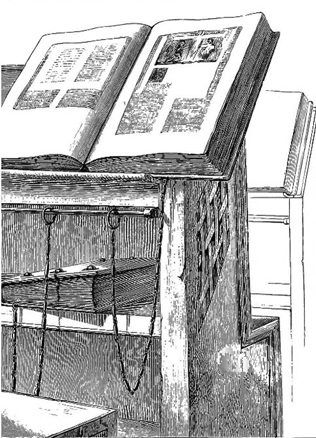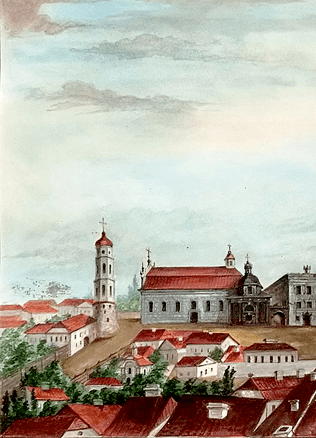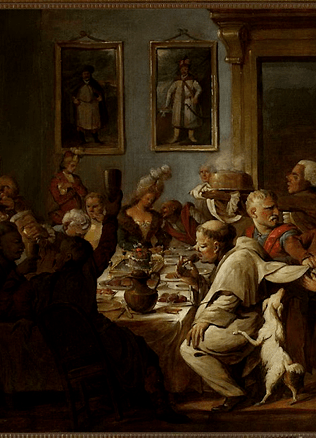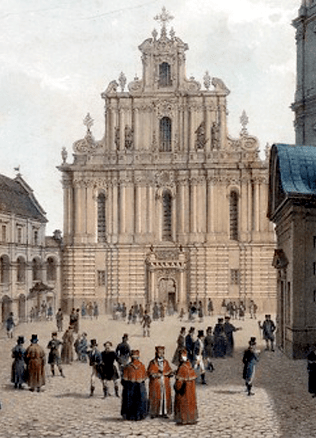The Issue of Social Tolerance: The Jewish Experience
There are quite a few documents shedding light on how the Lithuanian society treated Jews during different historical periods and why the image of Jews eventually became negative. Did Jews living in the Grand Duchy of Lithuania feel benevolence from other social groups and did Jews consider their living environment safe? What did Jews think of the society as a whole given that the GDL is traditionally considered a country tolerant to other religions and different social backgrounds?
In the Middle Ages and the Early Modern Period, the relationship between different confessions was marked by preconceptions and models of behaviour between the representatives of various groups inside the societies and influenced by earlier experiences of communication. The image of Jews was determined by religious thinking or, in other words, the adaptation of superstitions and stereotypes inside the GDL society. On the other hand, the Jewish community based its attitude to non-Jews (Hebrew: goj, plural goim) on the principles of Judaism. The term has been used in Jewish historical sources throughout the GDL while the Lithuanian word gojus meaning a grove in the Lithuanian folklore also takes its roots from goj. The division between Christians and non-Christians so widely known in the Christian environment had its equivalent in Judaism which regards Jews as the nation chosen by God and their religion as the only true one.
Jews tried not to get in the Christian’s way
Living in hostile environments for centuries, Jews were compelled to protect their religion and customs but the collective security of every member of their community was another vital value that called for considerable individual efforts, such as adherence to certain rules and avoiding provocative situations. The self-control of the Jewish community in the GDL became clearly pronounced after the establishment of the Lithuanian Vaad in 1623. Vaad was the most influential institution of the Jewish self-governance involved in shaping the Jewish positions inside the society and coordinating them in accordance to the changing conditions such as the rise of anti-Jewish sentiment or extraordinary situations in the life of the society. Vaad’s decisions include quite a few provisions that impose restrictions on the members of the Jewish community in order to avoid potential provocations against Christians and the escalation of their negative attitudes toward Jews. For instance, showcasing luxury was considered a pretext for attacks against Jews, therefore Jews banned members of their community from wearing sable fur and limited the number of jewellery and laces that any Jew can have on. The wealthiest members of the community enjoyed the exception though, but they had to pay at least 2,000 zlotys in annual fee to support the community.
The fact that the Jewish community did its best to stay away from any sort of provocations and to ensure – by giving out gifts and closely monitoring the situation – the widest possible support from influential patrons and benevolent individuals serves as a proof that Jews did not feel safe about their present and future.
The relationship between Jews and the rest of the GDL, just like any other non-Jewish community, can be traced down through the definitions of non-Jews in various historical documents. The aforementioned term of goj, or a non-Jew, was used in Vaad’s documents but other Jewish chronicles also feature an unambiguously negative combination – “our enemies”. It must be noted though that the latter description is only found in documents related to the Cossack uprising in Ukraine (1648–1657) led by Bohdan Khmelnytsky when living conditions were far from normal with Jews suffering from outbursts of violence, so “our enemies” in this case basically means those who acted violently against Jews or tried to force them abandon their faith. For the Jewish communities who suffered gravely during the uprising, the image of paradise (“Poland, you were a paradise”) turned into the vision of a widow abandoned by her sons in the poem by Moses Narol, a poet who wrote in Hebrew and had himself fled Galicia in 1648. Amid growing anti-Jewish sentiment and shifting principles of social life, the Polish and Lithuanian Commonwealth was a paradise only in the eyes of those who were engaged in actions against Jews who, according to them, prospered „in Clarum Regnum Polonorum / Paradisus Iudeorum“ („in the Glorious Kingdom of Poland / The Jewish paradise“).
Jews in the Polish-Lithuanian Commonwealth: “Here, where they hate us less…”
Paradoxically, the attitudes of the Christian majority to Jews remained largely unchanged in the 16th and the 17th century in the eyes of Jews themselves. A Jew from Tikocin wrote back in 1541 that he saw hatred in the Christian part of the society “against our breed” while in 1795 Lithuanian Jews tried to protect themselves against “wishes of hearts of the locals when they become seriously angry against us in the face of all kinds of turmoils.” The comparison of the atmosphere surrounding Jewish communities in the 16th century cities in the GDL and that in other countries, however, leads to the conclusion that the GDL offered relatively favourable conditions for stable living. In reality, the environment of inter-communal coexistence represented an alternative both to harsh anti-Judaism evident in Western and Central European societies that would make everyday life sour for any Jew there and to what Moses Isserles, an eminent rabbi, called a modest but calm living “here, where people hate us less than in German lands. With God’s help, this will continue until our Messiah comes.”
Salomon Maimon, a Jewish philosopher of the Age of Enlightenment who was born in the present-day Belarus and received a classic education, offered probably the most rational description and evaluation ever brought by a Jew of life in the Christian Polish-Lithuanian Commonwealth that often appears too idealised in historiography. The words of the Jewish intellectual are full of meaning because Maimon tries to assess the attitude of the intolerant society toward his own community knowing its dark sides and not distancing himself from his own feelings, experience and knowledge of the Western world.
“Poland is probably the only country in the world where religious freedom and religious hatred is so equal.
Jews enjoy a complete freedom to express their faith and have other freedoms of city dwellers here, even their own courts. On the other hand, religious hatred is so intense that being a Jew is a scorn in itself.” It is not easy to name the decisive factors that helped shape the feelings of Jews toward the society of the GDL because all of them are equally important when one tries to evaluate the living environment and coexistence inside it, which includes approaches to non-Jews formed by religion and traditions, communication between communities, personal and business ties, and the Jewish experience that they brought from other countries. Before moving to the GDL, Jews had gained experience of living in Muslim and Christian countries. This is why they sometimes acted in preventive manner trying to forestall the likely but not necessarily real events.
Jurgita Šiaučūnaitė-Verbickienė



